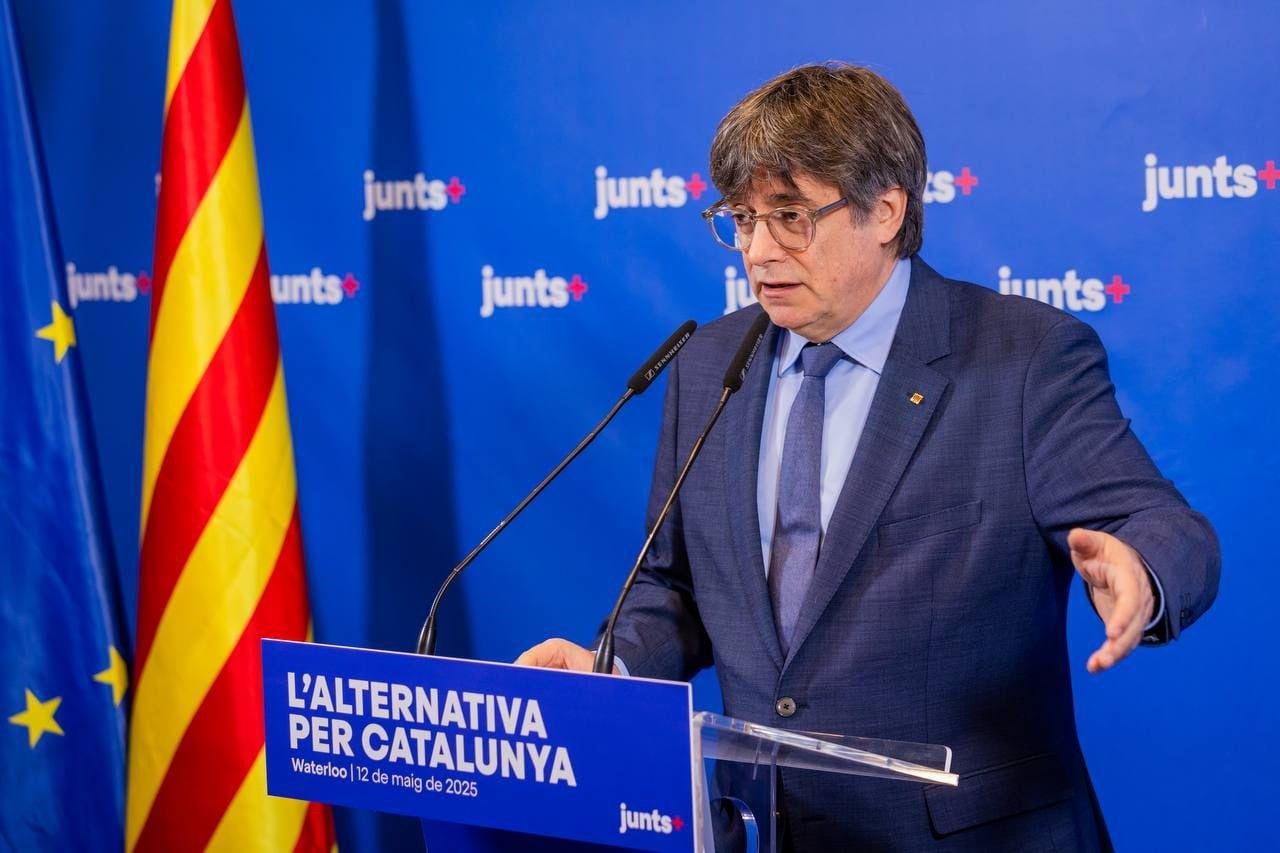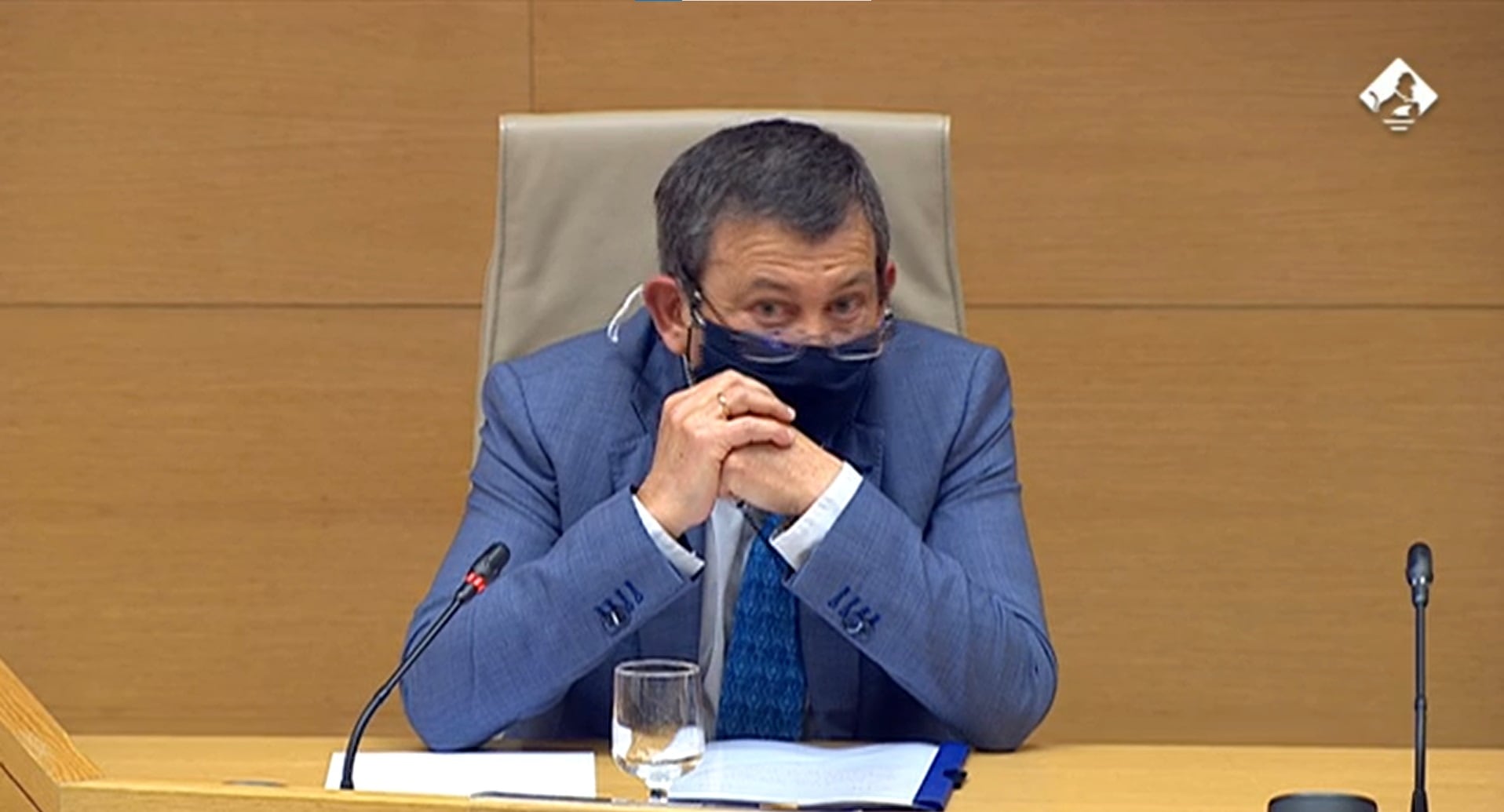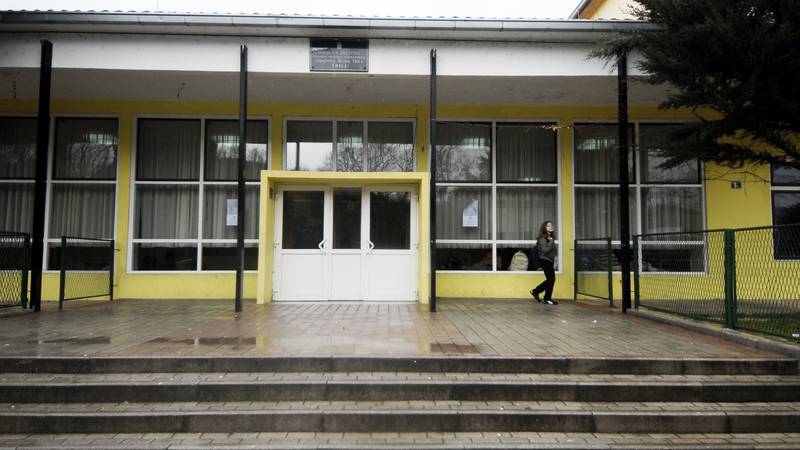The government throws the rest to approve Catalan, Basque and Galician in Europe this Tuesday | Spain

A decisive moment for the Spanish legislature is approaching, but that is elucidated in Brussels. The government has been discreetly preparing for months with the 26 European partners The approval of the official of CatalanBasque and Galician in the European Union, a historical claim in the communities that have them as a co -official language. And the document that would approve it will be submitted on Tuesday to the examination of the rest of the partners in which it will be seen if there is any veto, since it is required unanimously and there is no vote to use. If there were no veto, it would be approved. The government insists that it will not withdraw it in any case, so on Tuesday there will be a decision in one way or another.
The Executive, with José Manuel Albares, Foreign Minister, at the head of the negotiation, will move discreetly until Tuesday to get anyone to vete the proposal, which unanimously requires in the General Affairs Council. But the PP is also moving in the opposite direction, to try that some country governed by someone related to the PPE to go.
The battle until Tuesday will be intense, and the result has great political relevance in Spain, because The approval of the official of Catalan is a requirement of Junts with which the government has committed, and also of the PNV, another relevant partner for the Executive. Carles Puigdemont, leader of Junts, has made this issue a fundamental point of the legislature, With amnesty, which is also in process in the Constitutional Court, which is analyzing the appeal filed by the PP against the law.
Although a single country is enough to veto the initiative, the Executive continues to work until the last moment and is convinced that there are possibilities because the text that would be approved to make a kind of suit that would only include the Catalan, the Basque and the Galician and the Galician and would not open the door to the dozens of minority languages that exist in the EU have been negotiated but they are not official. The government has changed the text in these months and is willing to modify it until the last moment if necessary, to solve the concerns of several countries that fear that this feels a precedent and can open the door to other languages in addition to the 24 that are already official.
One of the formulas for that suit is that only the languages that were in the constitution of the member countries will be official at the time they entered the EU, it is not worth that they are included later. That makes practically only included, in addition to the 24 already officers, Catalan, Basque and Galician, who are in the Spanish Constitution since 1978 as co -official languages, and excludes fears that rusophone minorities from some countries can try to include Russian, or similar situations such as Turk in Cyprus.
In addition, another condition that will be put is that languages are used in the two cameras, Congress and Senate, of the affected countries, something that also happens with Catalan, Basque and Galician, which from the reform of this legislature is used in the two Spanish chambers. In addition, the translation cost would be assumed by the interested country, this is Spain. With details such as these, with detailed legal reports, and with the argument that it is not minority languages, but three languages that are used normally in autonomies where millions of Spaniards live, and in the case of Catalan with more people who speak that several European official languages, the government expects to convince countries with more doubts.
Even so, since it is a decision in the political fund, the PP pressure movement is also important and could contribute to disrupting the efforts of the Executive. Countries like Sweden or Italy, with foreign ministers near the PP, could be sensitive to these pressures in the opposite direction. But the Spanish government is confident that no one is encouraged to veto, a very extreme aggressive gesture, if an explanation work is done and the possibility of any necessary modification is opened to give more guarantees before Tuesday.
What is most tied to the Spanish Executive is the fear that the Spanish case opens a political pandora box in a Europe with fifty minority languages. An extreme that the Socialist MEP Javi López, a member of the Working Group of the Table on Language of Citizens and Linguistic Services, also rejects relying on the example of the agreements bilaterally closed with most European institutions. « Are there more than 20 years, have any other country asked to speak another language in another institution? The answer is no, the argument of the precedent does not work, » he says.
The Spanish proposal was again debated at the level of permanent representatives (ambassadors) before the EU of the twenty -seven this Wednesday, at the preparatory meeting of the General Affairs Council next Tuesday. There this issue is still proposed to be subjected to a vote, although the consultation is always withdrawn if the required unanimity is not consolidated, although government sources insist that they will not withdraw it. The unanimity, despite the intense diplomatic efforts of Spain – which « has done a lot of pressure », multiple diplomatic sources consulted – is still far from being assured. Although in the last week some positions have softened – some not resounding is no longer so sharp – in view of the fact that only one does not enough to throw everything for the board, the operation is complex. Difficult, but not impossible, clarifies a source. Tuesday’s appointment, in any case, promises to be a heart attack, all predicted.
Not even the most reluctant countries from the beginning to the Spanish proposal, such as the Baltic or Sweden, seem willing to say not sharply, after an intense negotiation discreetly of the Spanish government. There is a generalized conscience – « sensitivity », some call it – that it is an absolutely important issue for the government of one of the countries of the highest in the EU – it is the fourth community economy – and nobody visibly wants to bother him. But there is also discomfort – and that comes long – with a proposal that many continue to consider pure Spanish internal policy, although at the same time they recognize that this is a recurring practice in the block.
Some members such as the Netherlands, or even Germany, say they would not oppose, although they insist that they lack data to know all the implications. Germany is now directed by the conservative Friedrich Merz, of the family of the European Popular Party (PPE) where the Spanish PP militates.
One of the main concerns that continue to emerge is legal matter: numerous countries consider that it is not clarified if this proposal would require a reform of the treaties. Something that, according to several sources, has verified the legal service of the Council. Financing also worries. Although Spain has committed to assume the costs, several capitals point out that the Spanish is a political commitment, of the Government of Pedro Sánchez, so the promise of suffering the expenses is not legally binding and there is no guarantees that a government of another sign does not turn back and stop paying the invoices in the future. All this despite the fact that, in the 20 years that have been operating various bilateral administrative agreements with the main European institutions – except La Eurocámara, where it has been politically stopped – to be able to use Catalan, Spain has always paid translation costs, regardless of the party in power. It is being evaluated to request a new cost analysis. A previous one estimated at 132 million annually the expense of translating the three Spanish co -official languages in the institutions.








